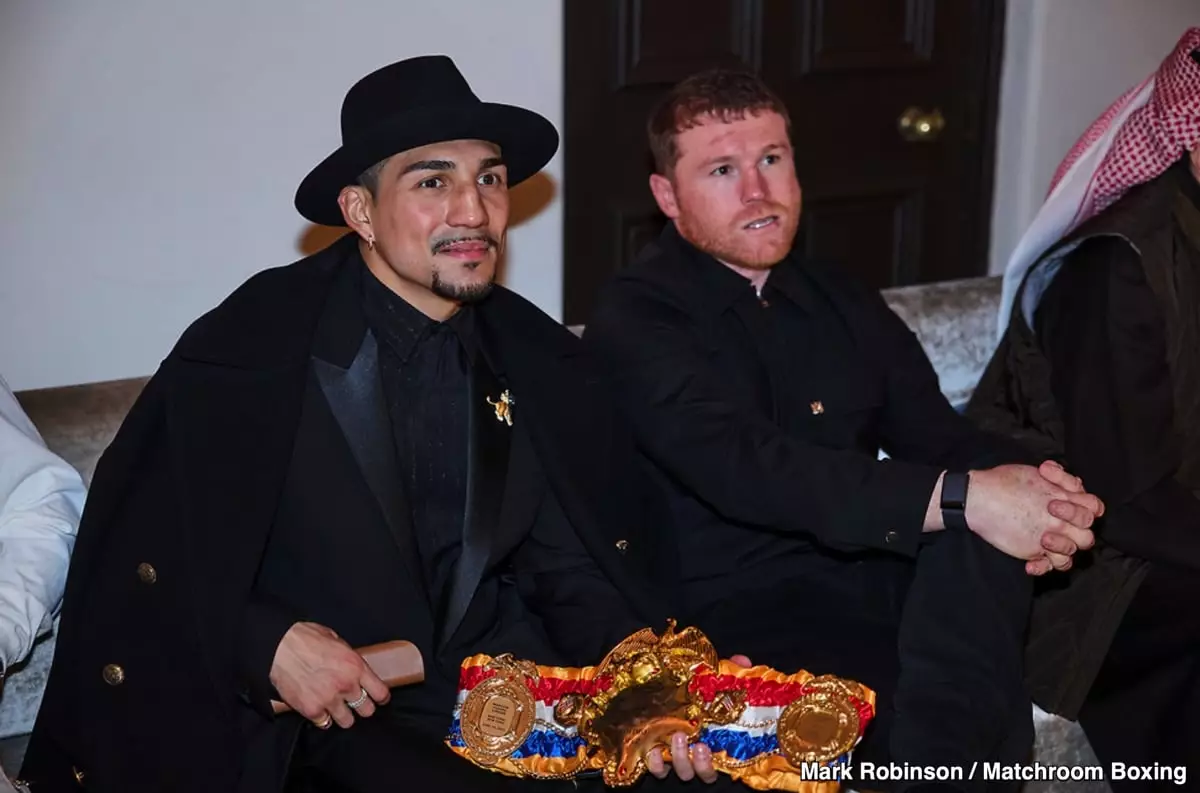In the dynamic world of boxing, strategic matchups can pivot careers and lay foundations for future stars. Turki Al-Sheikh’s recent announcement regarding a proposed welterweight tournament featuring Teofimo Lopez and Jaron ‘Boots’ Ennis has the potential to reshape the weight class narrative. Set against the backdrop of the highly anticipated Ryan Garcia vs. Devin Haney rematch in October, this plan intricately intertwines the fates of several notable fighters, promising both excitement and challenges.
Al-Sheikh’s idea of a mini-tournament, where winners move toward an undisputed championship fight slated for February in Riyadh, is arguably both ingenious and risky. The winner of the Lopez-Ennis bout would secure a spot against the victor of Garcia-Haney 2, potentially leading the path toward the undisputed title. However, this structure also raises questions about timing and priorities. Ennis is keen on unification bouts with other champions, emphasizing his ambition for dominance at 147 pounds. Should he choose to engage in Al-Sheikh’s plan, he risks delaying his championship aspirations, as he could defer his path to undisputed status until mid-2026. The ramifications of this decision could shift not only his trajectory but also affect other fighters involved.
Equally provocative is the arrangement for the losing fighters of both the Ennis-Lopez and Garcia-Haney encounters to compete on the same February card. This ‘losers’ bracket’ offers a second chance for those who fall short; nevertheless, it also introduces complications. For instance, if Haney, expected by many to struggle against Garcia, experiences defeat, his willingness to participate may wane considerably. The emotional and professional toll of losing a high-stakes match may deter fighters from a subsequent encounter under Al-Sheikh’s branding, challenging the collaborative spirit among promoters and boxers alike.
The success of Al-Sheikh’s ambitious format hinges heavily on cooperative dialogue among the three major promotional companies: Top Rank, Matchroom, and PBC. Without mutual understanding and cohesive strategies, the proposed matchups risk faltering. Negotiations will need to tackle complex logistics, financial expectations, and potential fighter gatekeeping, which could uncover disputes that stall the entire initiative. In that light, while the prospect of two major boxing cards within just a few months is enticing, it demands extensive strategic alignment among disparate parties, each with its agendas.
Overall, Turki Al-Sheikh’s proposition could breathe new life into the welterweight division and offer spectacular bouts for fans worldwide. Yet, inherent pitfalls exist along this complex path that could undermine these plans. The boxing community watches with eager anticipation, yet the real challenge lies in navigating the turbulent waters of negotiations and motivations among fighters. If successful, the proposed cards could not only elevate the sport but also solidify Al-Sheikh’s role as a pivotal figure in boxing’s continuing evolution. The coming months will be critical in determining whether this ambitious vision will materialize or falter under reality’s pressing constraints.

